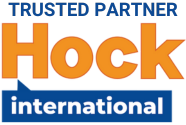If you want to explore a world full of great opportunities in the financial career pursuing a Financial Risk Management course in India could be a brilliant idea. FRM is a globally recognized certification that helps professionals with the skills & knowledge necessary to manage & mitigate financial risks effectively. This is Unique Global Education’s guide helping with the benefits of the FRM course, eligibility – criteria, curriculum – details, career opportunities, prep tips and frequently asked questions.
Table of Contents
Introduction
The financial sector is full of risks which makes the role of risk management professionals very important. The FRM course, offered by the Global Association of Risk Professionals – GARP, helps people learn how to manage different types of financial risks. As the demand for risk management experts grows in India the FRM certification has become a popular choice for those looking to succeed in this exciting field.
Benefits of Pursuing FRM Course in India
Diverse Career Opportunities
The FRM certification opens doors to various roles in risk managementt investment banking and corporate finance. FRM certified professionals can find exciting job opportunities MNCs and leading financial institutions. Whether you aspire to work as a risk analyst, investment – manager, financial analyst, or chief risk officer, the FRM designation can significantly enhance your career prospects.
Competitive Salaries
FRM certified professionals are highly valued and often receive good salary. As you gain experience and expertise your earning potential can increase substantially. The specialized knowledge and skills acquired through the FRM course make you a valuable asset to employers which is reflected in the competitive compensation offered.
Global Recognition
The FRM is recognized worldwide, enhancing your credibility and career prospects on an international scale. This global recognition can open doors to opportunities not just in India but across the globee making it easier to pursue a successful career in financse anywhere in the world.
Eligibility Criteria for FRM Courses in India
Educational Requirements
To enroll in the FRM course candidates must have a bachelors degree from a recognized university. This ensures that all participants have a foundational level of education necessary to grasp the advanced concepts covered in the FRM. Additionally postgraduates and professionals such as Chartered Accountants (CAs) Chartered Financial Analysts (CFAs) Cost Management Accountants (CMAs) and lawyers (LLBs) are also eligible to apply.
Work Experience
Candidates must have at least two years of relevant work experience in risk management or related areas within 5 years of passing the FRM Part 2 exam. This practical experience requirement ensures that certified professioinals have the hands-on expertise needed to apply their knowledge effectively in reeal-world scenarios.
FRM Course Curriculum
The FRM course is divided into 2 parts, each of which focuses on different facets of fianancial risk management.
Part 1
- Foundations of Risk Management Concepts- Includes an introduction to the fundamental principles of risk management.
- Quantitative Analysis- Understandings statistical & mathematical techniques essential for risk assessment.
- Financial Markets and Products- An overview of financial instruments, markets, and their dynamisc
- Valuation and Risk Models- Techniques for valuing assets & modeling financial risks.
Part 2
- Market Risk- Identifying, measuring, and managing risks associated with market movements.
- Credit Risk- Understanding the risk of loss due to a borrower’s failure to make payments.
- Operational Risk- Managing risks arising from internal processes, people, and systems.
- Investment Management- Strategies and techniques for managing investment portfolios effectively.
The exams consist of MCQs and are conducted in May, August and November. Part 1 comprises 100 MCQs, while Part 2 has 80 MCQs To passs candidates must achieve a score set by GARP.
Career Opportunities for FRM Certified Professionals
FRM certification paves the way for numerous career opportunities in various sectors:
- Banks and Financial Institutions- Manage financial risks and ensure regulatory compliance.
- Consulting Firms- Provide expert advice on risk management strategies and practices.
- Multinational Companies- Oversee global financial operations and risk mitigation strategies.
Roles available to FRM professionals include risk -analysts, investment -managers, financial analysts, chief risk officers. Companies seek FRM-certified individuals who are familiar with complicated financial markets and regulatory environments.
Preparation Tips for FRM Course
Quality Study Materials
Utilize GARP books and other reputable resources. Access online platforms for practice questions and mock exams to ensure you are well-prepared for the exam.
Structured Study Schedule
Dedicate time daily to studying and practicing questions. Regularly take mock exams to monitor your progress and identify areas for improvement.
Conceptual Understanding
Focus on grasping the underlying concepts rather than memorizing notes. Apply theories to real-world scenarios to better understand their practical applications.
Conclusion
The FRM certification is a valuiable credential for professionals aiming to advance their careers in the finance sector. It offers enhanced credibility global recognition, and increased job prospects. Enrolling in an FRM coursee can significantly boost your chances of success in the financial industry by providing specialized knowledge and skills in risk management.
FAQs
Q1: What is the FRM certification?
It is a globally recognized credential awarded by the Global Association of Risk Professionals (GARP) that demonstrates expertise in managing financial risks.
Q2: What are the eligibility criteria for the FRM course?
Bachelor’s degree and at least 2 years of relevant work experience in risk management or related areas within five years of passing the FRM Part 2 exam.
Q4: What career opportunities are available for FRM-certified professionals?
FRM-certified professionals can pursue careers as risk- analysts, investment -managers, financial analysts, and chief risk officers in banks, financial institutions, consulting firms, and multinational companies.
Q3: What does the FRM course curriculum include?
The curriculum is divided into 2 parts- covering topics such as quantitative – analysis, financial -markets and products, valuation, risk- modeling, market risk, credit- risk, operational- risk, and investment management.



